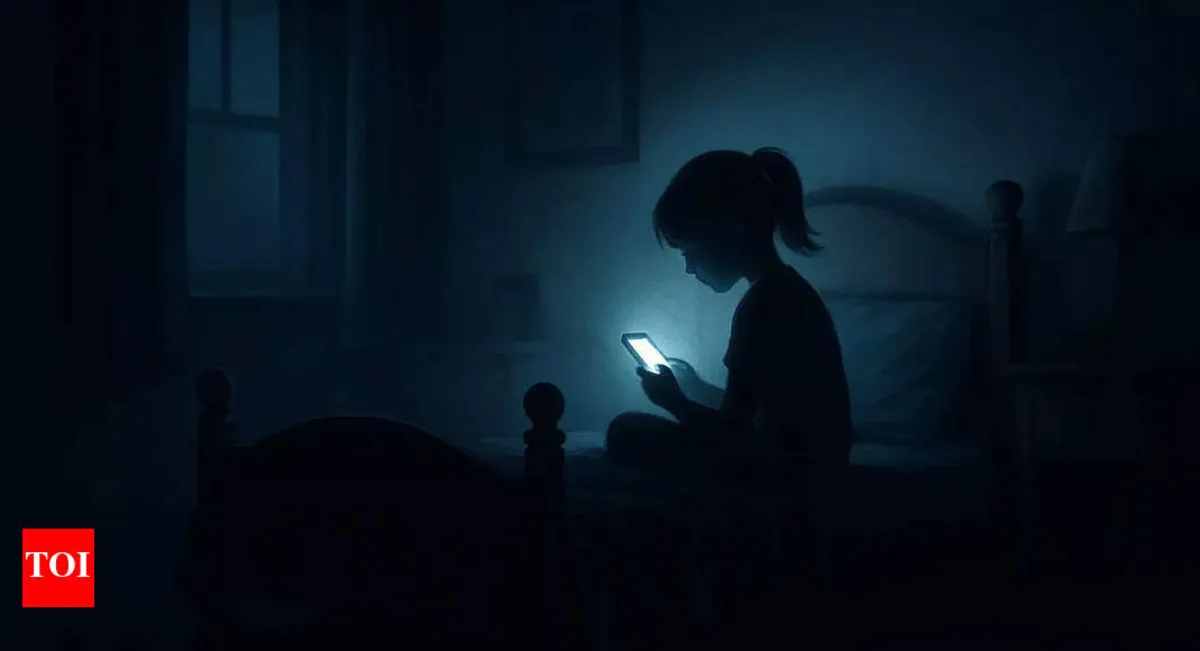
Turning personal tragedy into a nationwide warning, a Virginia mother is urging parents to rethink the role of smartphones in their children’s lives, particularly during the nighttime hours. Summer Bushman, a resident of Salem, Virginia, tragically lost her 10-year-old daughter, Autumn, to suicide earlier this year after enduring months of bullying, both in-person and online.
In an emotional interview with CBS News, Summer revealed that Autumn frequently used her smartphone in bed at night, a habit she now believes significantly contributed to her daughter's untimely death. “She was looking at her phone just before it happened,” Summer lamented. “I wish I had never let her keep it in her room.”
Autumn was, by all accounts, a bright and joyful child—a fourth-grade cheerleader who filled her home with music and dance. “She turned my living room into a stage,” her mother fondly recalled. However, beneath her bubbly exterior, Autumn faced relentless teasing about her braces and appearance. Like many children today, she sought connection through her smartphone, which unfortunately became a portal for cyberbullying. Late-night messages and negative comments on social media exacerbated her pain. What once might have ended at the school gates now followed her home, glowing quietly from her pillow.
Psychologists refer to this phenomenon as the “24-hour schoolyard,” a digital extension of peer pressure and cruelty that leaves children with little room to recover from their daily struggles.
On March 21, Autumn took her own life in her bedroom. When her mother discovered her, the phone’s screen was still illuminated. “She used to say she needed her alarm,” Summer said softly. “And every morning when I went to wake her, the alarm was ringing.” This heart-wrenching event reflects a troubling pattern seen across the globe. In the United States alone, youth suicide rates have escalated by over 50% in the past decade, with increasing evidence linking social media use, particularly at night, to depression and self-harm.
A 2019 Lancet Psychiatry study found that adolescents who spend more than three hours a day on social media are twice as likely to report mental health issues. This alarming statistic underscores the urgency of addressing smartphone use among children.
Late-night smartphone use not only exposes children to online dangers but also affects their mental and physical health. Screens emit blue light, which suppresses the hormone melatonin, disrupting natural sleep cycles. Sleep deprivation intensifies anxiety, impulsivity, and depression, all factors linked to an increased risk of suicide. A recent study from Virginia Tech reinforced this connection, revealing that nearly 75% of adolescents who attempted suicide had been using screens shortly before the incident, with most occurrences happening after 8 p.m.
“It’s pretty dangerous for bullied children to have their phones at night,” noted Dr. Abhishek Reddy, the lead researcher. “During the day, they have access to support from counselors, teachers, and parents. At night, that access disappears.”
For Summer, the loss of her daughter has propelled her into a mission. She now advocates for parents to remove smartphones from their children’s bedrooms, restrict nighttime usage, and promote healthier sleep routines. “If I could go back, I’d take that phone away,” she expressed. “She deserved to live a long, happy life. Now, I’ll never see her go to prom, get married, or chase her dreams.”
Her powerful message resonates with growing calls among educators and child psychologists to postpone smartphone access for young children altogether. Some schools in the U.S. and Europe are implementing “phone-free hours” or collecting devices during class time to reduce dependency on screens.
Summer Bushman's heartbreaking journey serves as a critical reminder of the need for digital boundaries in children's lives. As parents, educators, and communities, it is essential to prioritize the mental and emotional well-being of our children by carefully assessing their smartphone usage, particularly during the vulnerable nighttime hours.